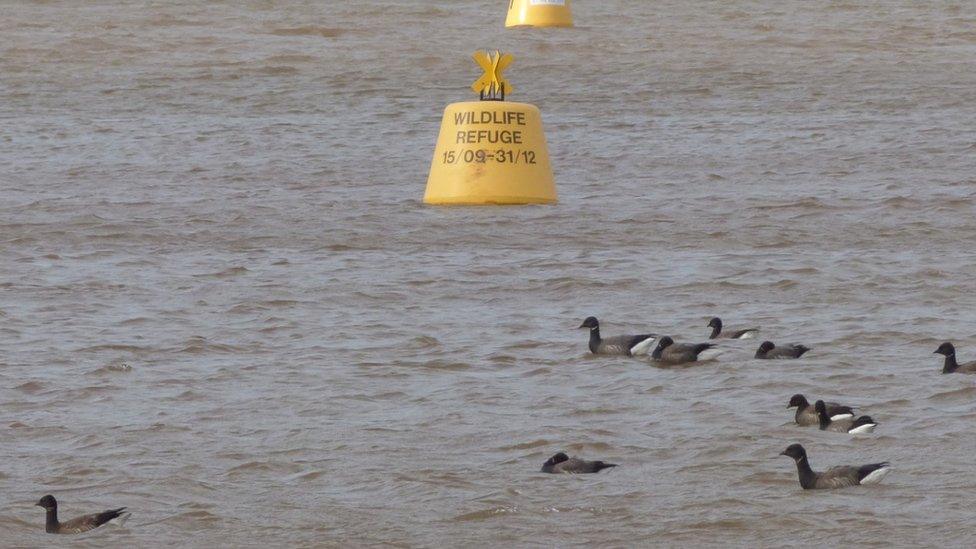Exe Estuary protection zones proving a success for birds, say experts
- Published

Water-users are asked not to enter the wildlife refuge zones
Two wildlife protection zones in the Exe Estuary are proving to be a success, five years after they were introduced, say bird experts.
The seasonal refuge zone near Exmouth operates between September and December, while the zone at Dawlish Warren operates year round.
During these times, water-users are asked to avoid entering the areas.
Wildlife experts say the zones are helping to protect birds using the estuary to feed and roost.
"Despite some major ups and downs in certain species over the last 50 years, the total number of waterbirds on the Exe has remained remarkably stable, with wintering numbers of waders and wildfowl consistently around 15,000 birds," said David Price, a volunteer with the British Trust for Ornithology.
"The two refuge areas at Exmouth and Dawlish Warren make a significant contribution to supporting this number of birds.
"The sand spits and beach areas at Dawlish Warren offer safe roosting sites at high tide for wading birds to rest on whilst their feeding areas are covered.
"Protection for these two areas is therefore an important element of conserving a significant proportion of the Exe Estuary's birdlife," he said.
The wildlife refuges have been operating since 2018 and are marked with yellow buoys.
Councillor Emma Morse, chair of South East Devon Habitat Regulations Executive Committee, said: "The birds are easily disturbed by people, dogs and all kinds of water-users, so by avoiding the wildlife refuges you are playing an important role in helping them to survive after their long flights."

Follow BBC News South West on Twitter, external, Facebook, external and Instagram, external. Send your story ideas to spotlight@bbc.co.uk, external